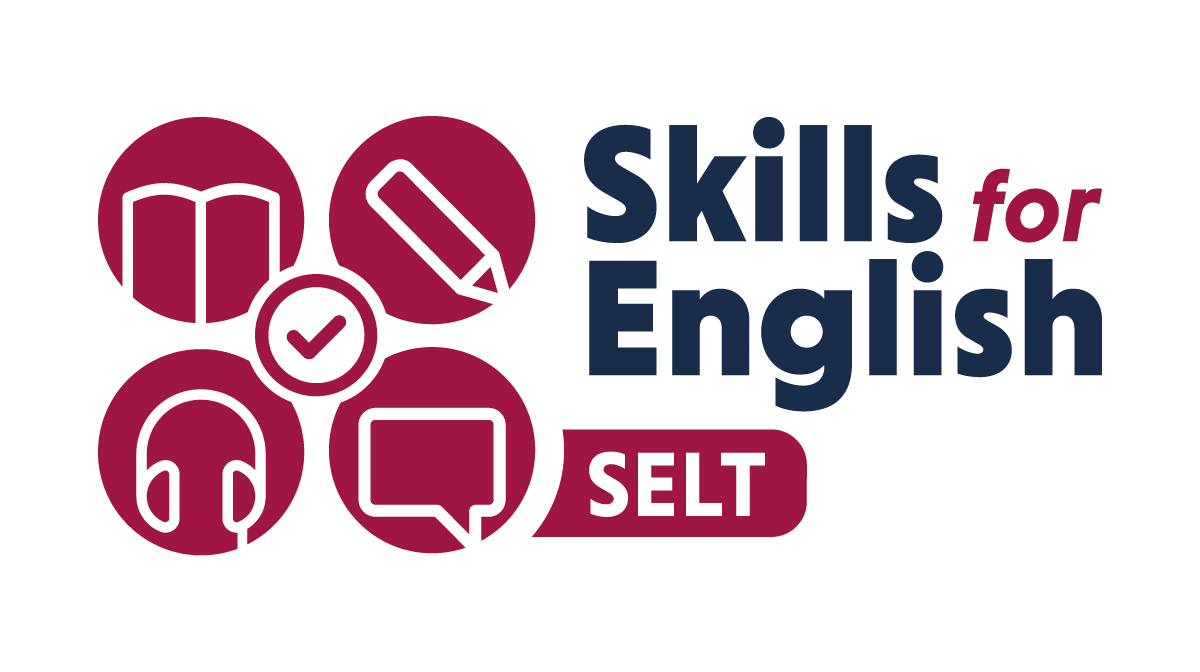Changes mean faster and easier application from more countries where Skills for English SELT can be used to prove English language proficiency
England is one of the most sought-after locations to teach. With a world-class education system, competitive salaries, and support for professional development, England’s schools have been drawing international talent for decades. And now, the UK government has made it easier for more teachers to join its thriving workforce.
Qualified Teacher Status (QTS) is the certification that overseas teachers need to have before they can teach in England. It’s a legal requirement for many schools in the country. As such, it plays a big role in helping teachers find work faster.
Last year, the government announced changes to the way that it awards QTS.
Here’s everything you need to know about the revised UK QTS process, and how best to prepare for it.
What are the new changes to the UK QTS process?
Previously, teachers from different countries outside of the UK had to follow different processes to obtain the certification. That meant that even if candidates had the same experience and skills, the speed and ease of their application was determined by their location.
However, from February 1st 2023, teachers from nine additional countries will be able to apply for QTS in England. These countries are:
- Ghana
- Hong Kong
- India
- Jamaica
- Nigeria
- Singapore
- South Africa
- Ukraine
- Zimbabwe
The UK chose to include these countries because research shows that teachers from these nations are already valued members of England’s schools. England also already shares strong educational ties with these countries.
Crucially, by the end of 2023, qualified teachers from all countries outside of the UK will be eligible to apply for QTS in England.
The updated specifications mean that more overseas teachers with qualifications will be recognised and welcomed in England’s education system. According to predictions from the UK government, the QTS changes could see up to 74% more people awarded QTS.
How to apply for QTS in England
There are four pathways to apply for QTS in England:
- Via the new online service, Teaching Regulation Agency (TRA)
- Via assessment only QTS
- Via teacher training in England
- Via train for international qualified teacher status (iQTS)
The route teachers have to take depends on where you are qualified, what your subject specialism is, if you have prior teaching experience, and what your personal circumstances are. Gov.uk has a summary of each of the pathways.
Requirements for QTS
All QTS applicants from all countries need to meet the following criteria:
- Hold an undergraduate degree to the same standard as a bachelor degree in the UK; the degree must be verified by UK ENIC
- Completed teacher training to the same standard as UK level 6, for the same length of time as an English initial teaching training course
- Taken a course with pedagogically and practically-focused content
- Be certified to teach students aged 5 to 16
- Have one academic school year’s worth of professional experience, post qualifying as a teacher
- Hold the professional status required to be a teacher in the place where the qualification was obtained (and not be subject to any restrictions)
Teachers from overseas must also have a certain level of English language proficiency and provide proof one of the following in your QTS application:
- You hold citizenship or be born in the UK (or hold citizenship for exempt nationalities for English proficiency)
- You have studied at undergraduate level or above, in English, in the UK
- You have achieved a CEFR B2 level English language score at a secure English language test (SELT) provider; B2 level is equivalent to:
- Pass at PSI Services (UK) Ltd
- 5.5 at IELTS SELT Consortium
- 33/50 at LanguageCert
- 59 at Pearson
- Pass at Trinity College London
Skills for English is a certified SELT provider, offering English proficiency tests for QTS in centres across 130 countries. Through the Skills for English platform, overseas teachers can book and prepare for the English proficiency component of their QTS application.
Life in the UK for QTS teachers
 Schools in England are diverse. There is a wide range of cultures and ethnicities among students, especially in larger cities and in London. Fellow teachers also come from around the world, and create a school system that strives to be inclusive and celebratory of different backgrounds and practices.
Schools in England are diverse. There is a wide range of cultures and ethnicities among students, especially in larger cities and in London. Fellow teachers also come from around the world, and create a school system that strives to be inclusive and celebratory of different backgrounds and practices.
What to expect in UK schools
Education in the UK is influenced by liberal ideas and personal responsibility. Students are often encouraged to apply critical thinking and to observe the possible impacts of their actions and conclusions.
They are also taught in environments that emphasize tolerance towards others. Teachers are expected to lead classes that are interactive and motivate students to continue exploring beyond the classroom.
England also has an impressive selection of technology in its schools. Funds have been allocated to integrate more sophisticated tools into classrooms, including smart boards and mobile devices. Technology also helps make content more engaging for students.
On top of that, there are plenty of opportunities to organise school trips and explore historical landmarks, arts, sports and activities in England.
Many attractions are no more than a few hours away by coach, so teachers often plan excursions where students learn in the great outdoors of England. Teachers can also choose to take advantage of partnerships with the Associated Board of Royal Schools of Music and the Duke of Edinburgh Award.
Advice for overseas teaching moving to England
- Know the type of visa you need. Ensure you meet all the requirements, and have submitted all the appropriate evidence. The visa for QTS teachers is a skilled work visa, and you’ll need to:
- have a Home Office-approved UK employer;
- have a certificate of sponsorship;
- be eligible for the occupation;
- be paid at least the minimum salary for the job role;
- and have a good understanding of English.
- Research the city, town or village you’ll be working in. Look up things to do, stores, transport links, and generally familiarise yourself. This will help you feel more comfortable and less stressed when you arrive. It’s also a good idea to see if there are any online groups for overseas teachers in the area. This will give you the chance to build a community as soon as possible.
- Prepare for cultural adjustments in England. British people are generally very polite and friendly. Even so, they can sometimes seem cold to people from other countries. Books like Watching the English by Kate Fox, and British Cultural Identities by Mike Storry are helpful to understand how people are expected to behave in public and how to avoid awkward scenarios.
- For such a small island, the UK has a surprisingly vast selection of dialects. Use resources like YouTube to listen to a range of accents from England. No matter where you’re based, search videos that showcase accents around the UK. They will help you get comfortable with the flow and slang. It’ll be very handy if you have students from other parts of the country.
- Bring memorabilia from your home country. Sharing parts of your nationality and customs is an effective way to bond with students. It also helps inform them about other parts of the world. At the same time, it’s important for you to have sentimental items in the moments when you inevitably feel homesick.
The changes to the UK QTS process open doors for brilliant teachers across the globe to work and live in England. Make the most of the opportunity and book a SELT test with Skills for English.
Skills for English: SELT is a UKVI-approved English test for visa and immigration applications. Through PSI’s UK office, we work closely with the Home Office and the Department for International Trade (DIT), supporting their missions of developing closer collaboration and forging new economic and educational ties with strategic partner countries.
The Skills for English suite of proficiency tests are the result of a partnership between the Scottish Qualifications Authority (SQA) and PSI, a global testing provider, delivering 22 million assessments a year in over 160 countries.
For more information go to skillsforenglish.com or email [email protected]



